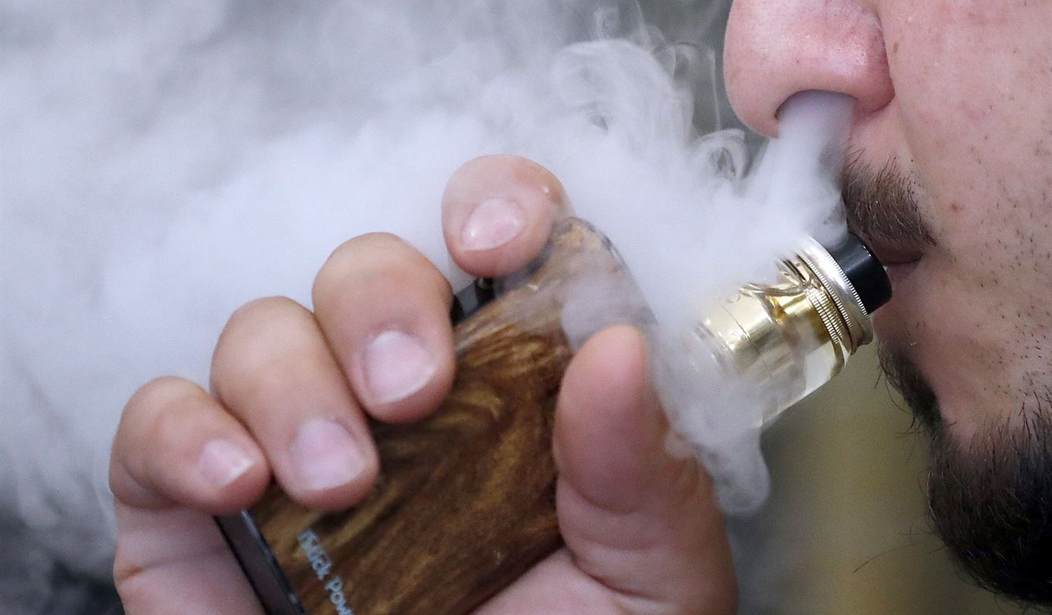Right before the world was transformed by the COVID-19 pandemic, the United States was seemingly dealing with another so-called “epidemic” of vaping-related lung injuries. As quickly as this vaping “epidemic” came into attention, it dissipated, with the Centers for Disease Control and Prevention (CDC) reporting in February 2020 that cases were declining “after sharply increasing in August 2019 and peaking September.”
Unfortunately for adult users of tobacco harm reduction products, policymakers – armed with misinformation from anti-tobacco and vaping organizations – blamed all vapes and moved to restrict the sales of flavored vapor products. The CDC would eventually determine that most of the vaping-related lung injuries were attributed to black market products containing tetrahydrocannabinol (THC). Not that it mattered. As of February 2022, New Jersey, New York, and Rhode Island have banned flavored vapor products, Massachusetts has banned both flavored tobacco and vapor products, and voters in California will decide in November if the Golden State too will join Massachusetts.
While the spat of lung injuries was touted to justify statewide bans, anti-tobacco organizations had been actively pushing localized flavor bans, which may have led to more increases of vaping-related lung injuries.
For example, 11 states reported 100 or more cases of vaping-related lung injuries; five of these states (Massachusetts, Minnesota, California, New York, and Illinois) were states with local flavor bans in effect. Of the 11 states reporting 1 to 9 cases of vaping-related lung injuries, only two had local flavor bans in effect (Colorado and Rhode Island). Localized flavor bans were also associated with a greater chance of a vaping-related death. Six of the seven states reported vaping-related deaths including three deaths in Minnesota, four in California and New York, and five deaths each in Illinois and Massachusetts.
Recommended
Further, statewide bans have not only failed to reduce youth use of age-restricted and banned product, but have led to the use of unregulated, black-market products. Or the same products that were the culprits in 2019’s vaping-related lung injuries.
The media, however, seems more concerned that vaping lung injuries are happening once again, not that black market products are causing harm. For example, a February 2022 article from a news outlet in central New York decries “teen vaping” and people being “hospitalized.” The author recalls incidents at several regional schools where students became ill and/or were sent to the hospital after using a vaping device. While the author doesn’t offer any information to the product type and/or substance vaped, the Oneida County Sheriff’s Office was quick to note that they “don’t know what [the students are] taking and whether it’s just nicotine, whether it’s nicotine mixed with THC or fentanyl.”
In the wake of both New York’s flavored vapor ban and legalizing recreational marijuana, a slew of smoke shops have opened recently in the region. This has raised alarms and caused problems. At a January City Council meeting in Auburn, NY, one Councilor mentioned the number of new “smoke shops” and questioned whether the city could limit the number of new shops as they were concerned about “the nature of these businesses.” A raid on one such business was conducted in February 2022and “led to the seizure” of marijuana products, flavored vapes, and untaxed cigarettes.
The federal government’s actions have also led to a swarm of unregulated vapor products. In September 2021, the U.S. Food and Drug Administration (FDA) publicly applauded itself or denying premarket tobacco product applications to 946,000 flavored vaping e-liquids that had been on the market since at least August, 2016. In a statement, then acting-FDA Commissioner Janet Woodcock noted that removing flavored e-cigarettes was an “appropriate action to protect [the] nation’s youth.”
If anything, the denial of so many existing products only opened up the market to new, unregulated products from China that are causing issues among young adult users. An 18 year old from Tennessee made international news when a “fake disposable” caused a reaction that led to pneumonia. Another 20-year-old claimed on Facebook that they had been diagnosed with vaping-related lung injuries after “vaping … mostly disposables.”
Unregulated disposables are the consequences of the January 2020 ban on flavored pods. According to the CDC, sales of mint and flavored pods decreased between 2019 and 2020, while sales of disposable vapor products in the same flavors increased. And unfortunately for users, many are unregulated.
The anti-tobacco and vaping groups should be applauded for their efforts in reducing youth use of such products. However, they should also accept responsibility for the consequences of black-market products infiltrating newly established markets where flavored vapes are banned for legal retail sale. Bans will always lead to a black market and have only created more problems for both youth and adult consumers of tobacco harm reduction products.

























Join the conversation as a VIP Member